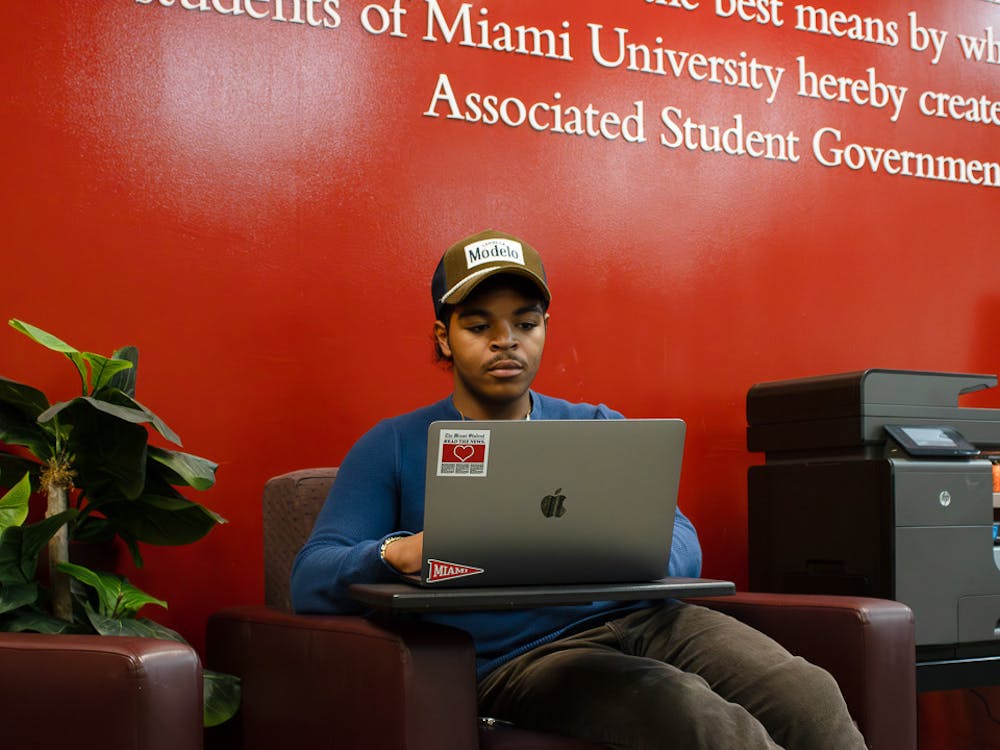By Lilya Nguyen, For The Miami Student
[media-credit name="Photo by Pravali Kothakota | There are eight locations of the off-campus districts that ASG's new senators will represent." align="alignnone" width="300"] [/media-credit]
[/media-credit]
At the end of the 2014-15 school year, Associated Student Government (ASG) voted to add academic senators to specifically address academia-related issues during senate discussions. These senators began their roles this fall.
ASG also created eight districts that off-campus senators will represent, rather than all off-campus senators representing all off-campus students.
These changes aim to respond to undergraduate student needs by increasing student voice and representation in off-campus affairs and academic divisions that previously lacked focus.
Off-campus senators are expected to work with students on non-academic issues, such as Uptown parking, moving in and out of houses, relationships with real estate agencies and landlords.
Senior Nathan Callender who serves as speaker of the senate, said he believes the new districts will allow students to more easily contact someone when they have a problem off campus.
"There are a lot of problems with housing and agencies, so if you can't address the problems yourself and you need to reach out to someone else - we're right here," Callender said.
Callender also added that with the help of 17 off-campus senators, ASG will use resources available within the university and relationships with the city to solve the problems that students have to face.
ASG's legislative branch is currently made up of two members of senate leadership and 47 senator seats divided up into categories: 15 on-campus, 17 off-campus, 14 academic and one RA.
Secretary for Communications and Public Relations of ASG, junior Amy Berg, estimated that in previous years, 16 to 20 senators represented 8,000 undergraduate students living off campus in Oxford.
The academic senators will work with students to create a better undergraduate experience.
Enjoy what you're reading?
Signup for our newsletter
Junior and secretary of Academic Affairs Alexander Cary hopes to use his position to work closely with Miami's administration.
"My aim is to constructively engage with administration to make college more affordable for students while maintaining the academic excellence for which Miami is known," Cary said. "I look forward to working closely with Student Senate to implement an ambitious agenda."
Fourteen academic senators proportionately represent undergraduate students from all five major academic schools. The larger the student body of the school, the more senators it has.
Each senator works directly with students from his or her respective division to find relevant issues that need to be addressed by the Student Senate.
At this early development stage, academic senators serve as a conduit through which students can voice concerns about academic policies. Senators actively seek out feedback from students in the classroom and encourage them to reach out by email. As the roles of academic senators grow, they hope to begin to work directly with administrators in the academic colleges.
Senior Chrissy Graham, a student of Farmer School of Business and College of Arts and Science, thinks this change will encourage students to engage more with ASG.
"It's a smart idea to assign senators by academic schools in addition to where students live," Graham said. "I feel more confident in my senator's knowledge and understanding of the issues so I will be more open to voice my concerns."
While these changes have been met with enthusiasm, time will tell whether they have a definite impact on the undergraduate student experience at Miami.
"This is all new, so it is going to be an interesting year," Callender said.
ASG updated its website with a new contact section for students to send in feedback, concerns and ideas to improve the organization. The website also includes information on each serving member of ASG and minutes from Senate meetings.




